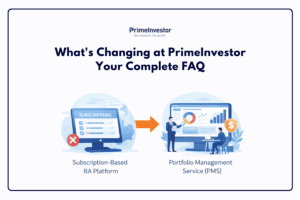Recently, changes to health insurance policies have been in the news. These regulatory changes have been termed consumer-friendly by the media and commentariat. But often, with insurance what you see is not what you get. In this article, we examine the five recent changes and their implications for insurance buyers.

#1 Cashless everywhere
The traditional practice in health insurance required policyholders to seek treatment at network hospitals to avail cashless benefits, sparing them from upfront payments. However, the General Insurance Council introduced a supposedly game-changing initiative in January 2024 known as ‘Cashless Everywhere.’
Under this initiative, policyholders now have the freedom to access cashless treatment at any hospital, not just those within the insurer’s network. For planned procedures, advance notification to the insurer 48 hours prior is necessary, while emergencies require notification within 48 hours of admission.
Our take
Even before this initiative, a cashless facility didn’t guarantee cashless treatment. After this change, it will be tougher for the insurer to recover any excess amount paid to the hospital. Therefore, the insurer will need to reach an agreement related to the cost of procedures with the non-network hospital before accepting a cashless claim.
Moreover, insurers will also investigate claims for non-disclosure, misrepresentation, and potential fraud before paying them. In cases where additional time is required for such investigation, they typically reject cashless claims and request documentation for reimbursement. Given the complexity of these negotiations, especially with non-network hospitals, we think you should think twice before approaching non-network hospitals for your procedures despite this change.
#2 Reduced waiting periods
Health insurance policies impose waiting periods before the policyholder’s Pre-Existing Diseases (PEDs) are covered by the policy. The maximum waiting period insurers could impose was four years earlier. But effective April 2024, the maximum waiting period has been reduced to three years by the regulator.
Our take
While insurers had the flexibility to impose waiting periods of up to four years, few of them actually went with this maximum limit. With increasing awareness of health insurance among potential policyholders, market dynamics have already reduced waiting period norms. Today, many policies offer waiting periods as short as one year.
In our Prime Health Insurance recommendations also, you can see that most policies already feature maximum waiting periods of three years or less. Nonetheless, the reduction to a maximum three-year waiting period is a positive development, aligning with prevailing market trends.
#3 No entry age for health insurance policies
In its recent regulations, IRDA removed an earlier clause that said insurers were required to offer products up to an entry age of at least 65 years. This deletion has been widely mis-reported in the media as the removal of an ‘age cap’ on health insurance. That is not the case.
What has actually been said is that health insurers must offer products “for all age groups” including for pre-existing conditions. As per the regulations now, insurers may design products specifically for senior citizens, students, children, maternity and any other group that may be decided. All that the regulations have done is to remove the specific mandate on entry age and instead simply left it open-ended.
Our take
There was nothing stopping insurers from offering policies for seniors, even earlier, and there already are senior-friendly policies. We have already highlighted a few such senior policies in our Prime Health Insurance recommendations. Assuming that more insurers will now come up with policies for senior citizens, we expect them to design specific products for seniors.
Health insurance premiums are typically determined by insurers’ expected liabilities, and policies with sub-limits and co-payments usually charge lower premiums. As age correlates with increased claim probability, insurers may charge significantly higher premiums for older adults if they come up with products without sub-limits or co-payments. Alternatively, senior citizen-specific policies may continue to carry limitations on cover, co-payment or sub limits.
#4 Reduction in moratorium period from 8 years to 5 years
It’s crucial to disclose all pre-existing conditions and prior health history when purchasing a health insurance policy. Failure to do so can result in claim rejection or policy cancellation based on grounds of non-disclosure or misrepresentation.
The moratorium period dictates how long a policy has to be renewed continuously before the insurer can contest claims. This moratorium period has been reduced from eight years to five years. After the moratorium period expires, insurers can only reject claims on grounds of fraud.
Our take
This change is certainly a welcome one. Amidst a health emergency, the risk of claim rejection adds unnecessary worry for policyholders. Any measure to reduce this risk is undoubtedly beneficial.
#5 New policies in digital only format
Starting April 2024, new health, life, and general insurance policies will be issued exclusively in digital format and must be linked to an e-insurance account.
Our take
There are both pros and cons to this development. On the positive side, this change represents a significant step towards digital transformation. Despite advancements in digitization across various sectors, the health insurance industry has remained largely paper-based. The current change primarily focuses on issuing policies in digital format and linking them to e-insurance accounts. For the tech-savvy, this would ease the management of multiple insurance policies.
However, for others, this mandatory step can be hard to deal with though there is a concession of sorts in that you can request a physical copy of the policy. The mandatory e-account can also pose a problem in family members managing or accessing insurance policies if required.
As of now, there is yet to be any mention of digital claims processing through this facility.
Therefore, while the digital push can be a welcome step, it needs to be seen how this develops and how much easier it can make purchasing and servicing of a policy.
Conclusion
While some of the recent changes may appear favourable for policyholders, their impact on enhancing the overall customer experience may be limited. Nevertheless, most of these are steps in the right direction and we are hopeful that the appeal of health insurance should increase in the coming years.







11 thoughts on “5 changes to health insurance policies & what they mean for you”
Is it true that seniors above the age of 80 cannot buy health insurance? Thank you!
Health insurers can set the entry age for policies. Most policies set entry age as 18 to 65, meanwhile most senior citizen specific policies limit entry age upto 80; however, there are policies that allow entry age above 80.
The article stated “Starting April 2024, new health, life, and general insurance policies will be issued exclusively in digital format and must be linked to an e-insurance account.”
1. Does this apply only to new policies or even renewed policies? My two policies renewed in April 2024 are not in digital format.
2. Understand that there are four entities approved as insurance repositories. What are anticipated challenges for customers wrt digital policies and e-insurance accounts?
3. Would claims need to be lodged only through an e-insurance account?
Hello,
1. Currently, it applies only to new policies, not renewals.
2. For those who purchase new policies, a KYC process will be conducted, and an e-insurance account (eIA) will be opened. All new policies will be listed under this eIA. The FAQ section of an insurance repository indicates that policy servicing will be available in the future, and currently, monetary transactions are not enabled.
3. At this point, claims cannot be raised through eIA.
We could see changes in what can be done through eIA in the future.
Hello
I think now it is necessary for insurance company to offer direct policy at reduced premium ie not through broker and premium would be less. Some thing similar to Direct plan instead of regular plan of MF.
Also broker change cannot be denied.
Can you confirm above points ? Is it really happening in practice?
Thanks and Regards
Hello,
The IRDAI has already instructed insurers to pass on the benefit of reduced premiums to policyholders who purchase insurance directly.
As for changing agents, while there is no standardized process for this, it is indeed possible. Policyholders can contact the insurer and inform them of their intent to change agents, and they should be guided through the process.
I have been refused by HDFC Ergo in writing. My experience with IRDAI has been very disappointing in resolving issues. If you have any suggestions?
Any one who has successfully changed agent or purchased directly can share his experience
It’s strange as I got an email from Star Health saying look at the network hospital in my area for admission for treatments saying non-network ones might not be covered under my policy. Is that different from saying cashless?
Non-network or Excluded hospitals? Star health has a list of hospitals marked as ‘Excluded service providers’. https://www.starhealth.in/lookup/hospital/#excluded-hospital
A policy should cover treatments at non-network hospital unless they’ve specifically exluded that hospital for any reason.
Nice write up. Thanks.
Thank you!
Comments are closed.